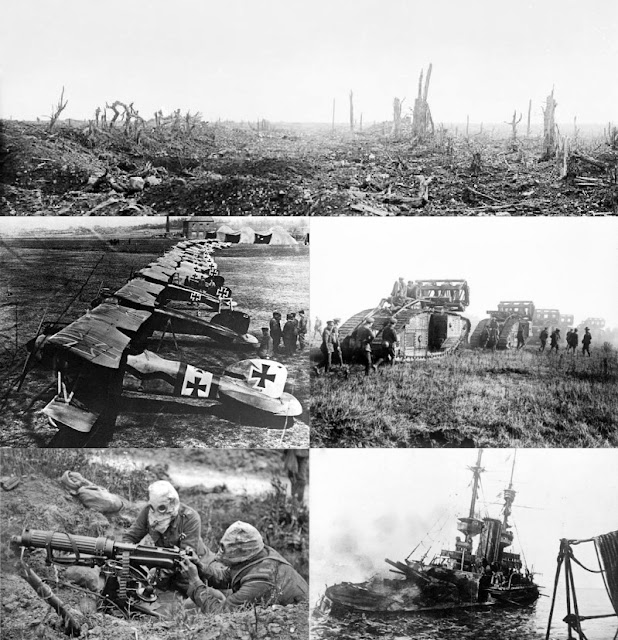 |
| World War I Montage - Wikipedia |
By Collin Hansen - Posted at The Gospel Coalition:
It was supposed to be the war to end all wars. After the armistice on the 11th hour of the 11th day of the 11th month (100 years ago Sunday on November 11, 1918), it would be known as the Great War. No one would have thought to call it World War I, because they could not fathom the even greater horrors to come just a few decades later in World War II. The peace of 1918 would not hold.
Americans pay far closer attention to World War II, even though the country suffered more than 117,000 military deaths in two brief and bloody years from 1917 to 1918. Indeed, the Meuse-Argonne Offensive that ended 100 years ago Sunday was by far the deadliest battle in American history, surpassing both the Battle of the Bulge and also the Normandy Invasion in World War II. Neither America, nor any other antagonists that suffered even greater losses, would ever be the same after this terrible and utterly avoidable conflict.
Philip Jenkins, distinguished professor of history for the Institute for Studies of Religion at Baylor University, has written an excellent book on the religious dimensions to this “holy war.” And we corresponded on the occasion of this somber anniversary to consider how the war shaped global Christianity, religious fervor, Christian theology, peace movements, and more. You can also listen to my earlier interview with Jenkins, “How World War I Became a Religious Crusade.”
See also:
- WORLD WAR I IN REMEMBRANCE (Log College Press)
- 5 Books to Help Us Never Forget (Reformed Perspective)